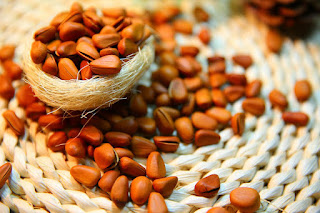Is Plum Safe for Dogs
Is Plums Safe For Dogs?
"Is plum safe for dogs?" is a frequently
asked question by pet owners from many different breed of dogs. Although the
answer is not one hundred percent sure, it can safely be said that plums are
safe for dogs if the following guidelines are adhered to. Of course, the
ultimate decision as to whether or not you can safely feed your dog a
particular product lies in your hand. However, you should consider these
points, and in doing so, you should be able to make an informed decision
regarding the safety of this popular product.
First of all, it is important to point out that not
all commercial brand dog foods are safe. There are many varieties available on
the market that contain ingredients that are potentially harmful to your pet.
For example, some products use fillers such as cornmeal or wheat, which are
simply filler that serve to enhance the flavor, but which do not add any value
to the food. Other ingredients that are not safe include artificial flavors and
preservatives. Unfortunately, this means that most commercial brands may not be
safe for dogs.
So, is plums safe for dogs? The answer is that yes,
it is safe for dogs if the right formulation is used. The safest form of this
particular product is a 100% pet-grade version, which will feature all-natural
ingredients. Pet food companies are required by law to use only natural
products in order to meet the requirements of the federal government. This type
of dog food is also the lowest-priced option, so it provides a significant
benefit to the budget of dog owners.
Furthermore, you should take note that the safe use
of this dog food is dependent upon your particular dog. Just as humans can have
adverse reactions to some types of food, dogs can react negatively to certain
types as well. You should consult with your veterinarian regarding this matter
before choosing a particular brand.
In general, there are no negative effects on dogs
that use this kind of treat. However, there have been some instances where dogs
have had an allergic reaction to the common ingredient, cranberry extract. In
addition, some dogs seem to be sensitive to the way the ingredients are
packaged. When a kibble version is made, it often lacks the moisture that many
dogs need in order to be digestible. In addition, they don't have the complex
carbohydrates that many other brands do.
Although this is often the case with dry kibble
foods, you should inspect the ingredients list for a few different brands. The
canned version will often contain ingredients such as oatmeal and wheat gluten.
The crunchy texture of these treats makes them appealing, but many dogs do not
like their typical dog biscuit-like snack. If you are looking for a healthy and
tasty snack for your dog, consider a quality canned alternative.
Is plums safe for dogs? If you have a young dog,
you may want to avoid this product. While it is good for dogs, the crunchy
consistency may be too hard for young dogs to handle. In addition, there are
several ingredients that could be harmful if ingested. These include artificial
flavorings and even coloring.
Finally, the crunch of this treat may appeal to
many dog lovers, but they are not chewers by nature. Dogs have little natural
instinct to crave the taste of a sweet treat. If your dog eats this kibble
regularly, it is probably okay, but if you have concerns, do not give it to
your dog.
Is plums safe for dogs? Even though the ingredient
list may appear to be healthy on its own, it is still not safe for dogs to
consume. Just like any commercial treats, too much can be harmful. As with any
commercial food product, it is better to choose wisely when choosing a treat
for your dog.
Is plums safe for dogs? The best way to answer this
question is to look at how dogs naturally chew. A dog's teeth are very strong,
and so they naturally use their tongues to search out various tastes. In
general, dogs will not turn their noses up at a sweet treat - unless they are
in a serious hunger crisis. However, if you are concerned about your dog's
dental health, it would be a good idea to consult your vet.
In general, dogs are happy to eat whatever treats
we prepare for them. The important thing is to choose a safe, quality product
that promotes overall dental health in your dog. While you may be tempted to
give your dog a big bowl of the traditional dried or frozen dry dog treat, this
isn't always the best approach.




Comments
Post a Comment